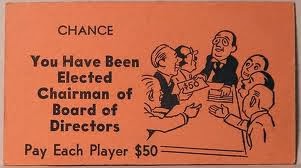Bloomberg Business Week, whose owner moonlights as New York City's mayor, recently placed a story in its online editions about reactions of certain rich Americans toward criticism of this country's wealth inequity. The piece, written by Max Abelson, appeared on December 20th.
Some of the top dogs in Abelson's story take a "tough darts" stance toward those Americans whose income is below the one-percent threshold -- approximately $350,000 annual income. What's much more striking than coarsely arrogant, dismissive one-liners is the awareness of how certain one-percenters perceive their power. Abelson's story quote from Delphi Financial Group CEO Robert Rosenkranz is revealing: "It's simply a fact that pretty much all the private sector jobs in America are created by the decisions of 'the one percent' to hire and invest...Since their confidence in the future more than any other factor will drive those decisions, it makes little sense to undermine their confidence by vilifying them."
Rosenkranz refers to power, the kind of capitalist power left-wing organizations a half-century ago caricatured. He does not consider social influences at all. The notion that strong criticism would somehow turn these lions of commerce into paper tigers just doesn't ring true. It's generally accepted that the so-called one-percenters have unique access to politicians, media "influencers," and like-minded major asset owners. Consequently, the idea that a handful of demonstrators could make powerful corporate players quiver like a roomful of chihuahuas lacks any sort of substance.
Ironically, a story in December 23rd online editions of the Financial Times noted a Michigan pension fund was suing to block the acquisition of Delphi Financial by Japanese insurance company Tokio (sic) Marine. According to the FT story, the suit alleges Mr. Rosenkranz "violated his fiduciary duty by unfairly enriching himself to the detriment of the company's shareholders." Oops.
Meanwhile, for a reasoned perspective on wealth inequality in the United States, the United Kingdom, and (in passing) Western Europe, Martin Wolf's recent column in the Financial Times is a breath of fresh air. Here's the link to it.
Subscribe to:
Post Comments (Atom)











No comments:
Post a Comment